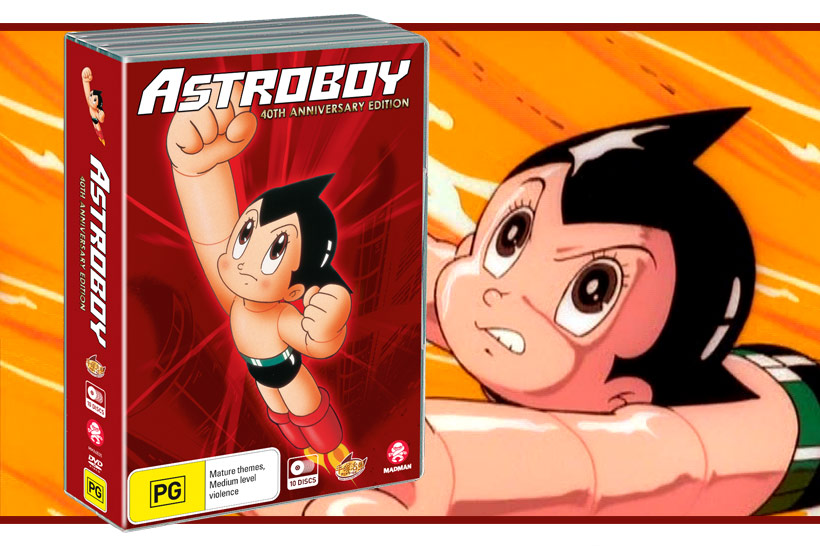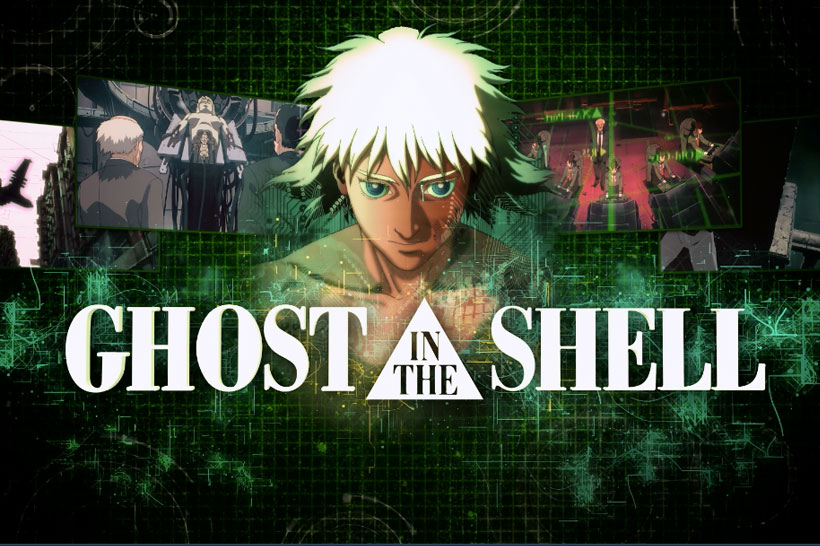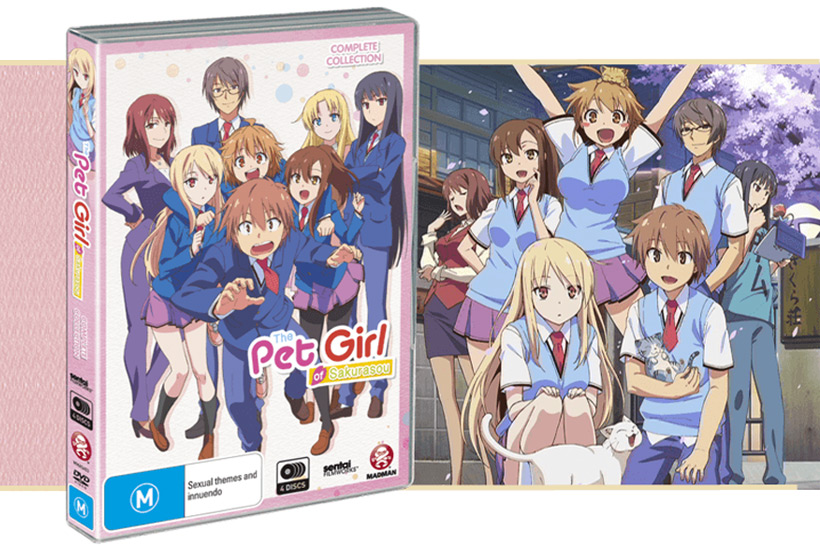Astro Boy is one of Osamu Tezuka’s most endearing and enduring stories. While the 1980 adaptation received limited airtime in the US, for Australian kids growing up in the ‘80s he was a mainstay of popular discourse (not that we’d ever use the word “discourse” as kids!). With the 40th anniversary of the original Japanese release now at hand, Madman has once again brought together the entire 51 episode English localisation together on DVD.
In 2020 it seems a little redundant to try and capture a synopsis as part of the Astro Boy 40th Anniversary Collection’s release. In short though, Astro Boy is the result of scientific genius Dr Boynton’s expertise in robotics to create a robot child in the image of his son who was killed in a car accident. While the result is a technical success, Dr Boynton disowns the robot after being unable to come to terms with its shortcomings and, if we’re getting a little deep and meaningful, as a result of uncanny valley syndrome.
Cast off from his creator but imbued with super-human powers and an AI soul, Astro Boy undergoes a number of challenges before settling in as a human boy, with robot parents (and later pets and a sibling) to match. While there’s degrees of continuity throughout the show, the narrative pacing rests on self-contained, episodic content for the most part that runs the gamut of childlike wonder with the world, superhero duties and dealing with disablement and death.
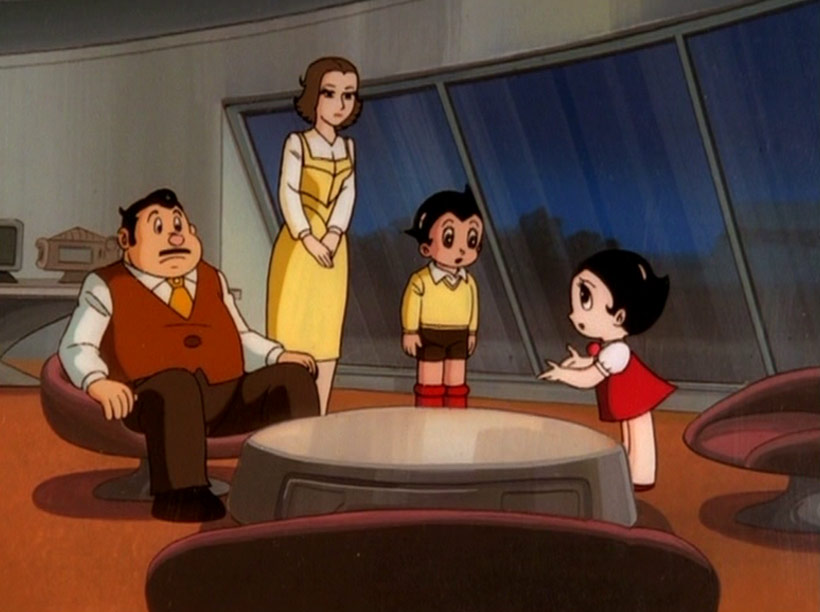
It’s fascinating where society has come since Tezuka’s initial visionary manga, the first black and white TV series and into this 1980 adaptation. While we haven’t quite achieved flying cars, proliferated robots and cybernetic augmentations, the human reliance on technology has become increasingly intertwined. We live in a society with artificial intelligence ingrained across our consumption of information and the media and where robots and automation have replaced (or made redundant) huge tracts of industry.
But what makes Astro Boy such an endearing property to watch all these years later is not just the way it has prophesised the future through its use of science fiction, but that underneath it all it are endearing (or aggravating) characters that underpin its narrative construct. Astro Boy perfectly overlays a child’s untainted goodwill against an otherwise practical tool that can be wielded for good or evil. Dr Elefun’s representation of the nobility of science (and through his virtuous behaviour, an equal expose of the ways it can be corrupted) demonstrates the strength of empathy and evidence in how it can contribute to society. Astro Boy’s creator, an easy excuse for a trope, rings true of how the grief from losing a loved one can drive you to try undoing your past and yet drive you mad out of the inadequacy of false representation. It also echoes the modern challenges faced as a result of increasingly prevalent AI and automation.
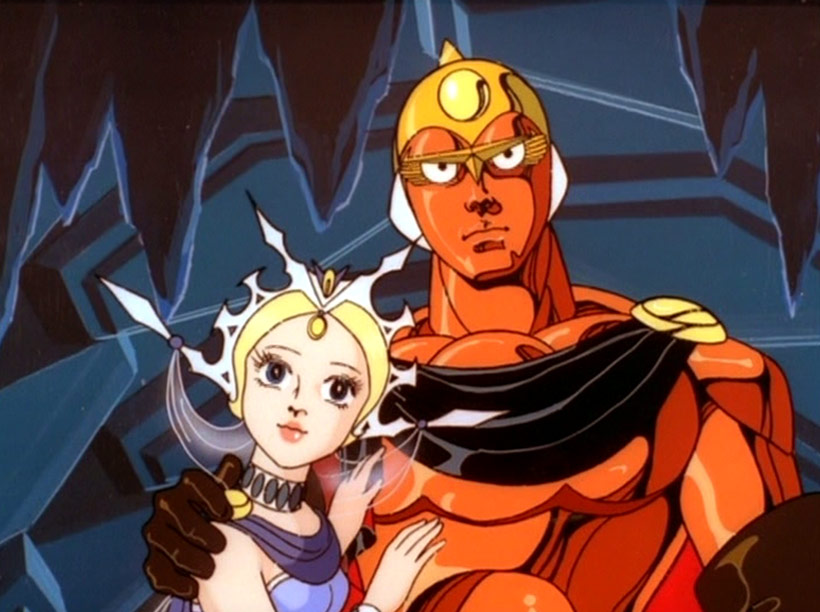
You can even look to Atlas, at once the antithesis of Astro Boy but ultimately a victim of neglect and abuse, and see how his world view has been shaped by his initial experiences to judge humanity and its fallacies as incredibly deep and moving despite the target audience. Atlas should be a trope of a villain, and out of the context of the entire show’s run it can appear as such. But there’s more than a little social commentary there – born of similar technology but raised in different environments, Atlas had the same potential as Astro but was corrupted by the environment that shaped him, a condition that resonates universally in the way that abuse and neglect cause massive ripples in the lives of young people that echo further than initially considered.
Beyond the themes and storytelling though, Astro Boy is a sentimental favourite. I can still remember getting the TV on in time for the 6:58am screening on ABC in the early 80s as part of the morning childrens’ programming block. Back then I found the show absolutely riveting and to this day still struggle to comprehend how lucky we were in Australian to have the ABC playing content like Astro Boy when I grew up in the 80s (let’s be honest though, the ABC continue to do the best kids’ programming in this country despite the persistent cuts to their budget). These days it’s an anime my son and I love watching together and it’s amazing being able to share it as a family.
For those who may have been into anime (or following Madman) for a while, this 40th anniversary set is effectively a reprint of the original DVD releases from 2004, which were also collected in the Madman 10th anniversary release. Despite the age of the DVD production, these still hold up well compared to more efficient, contemporary MPEG2 encodes. It also means, for a double-dose of nostalgia for anime fans who have been buying locally for over 15 years, these are replete with the older Madman splash animations and trailers.
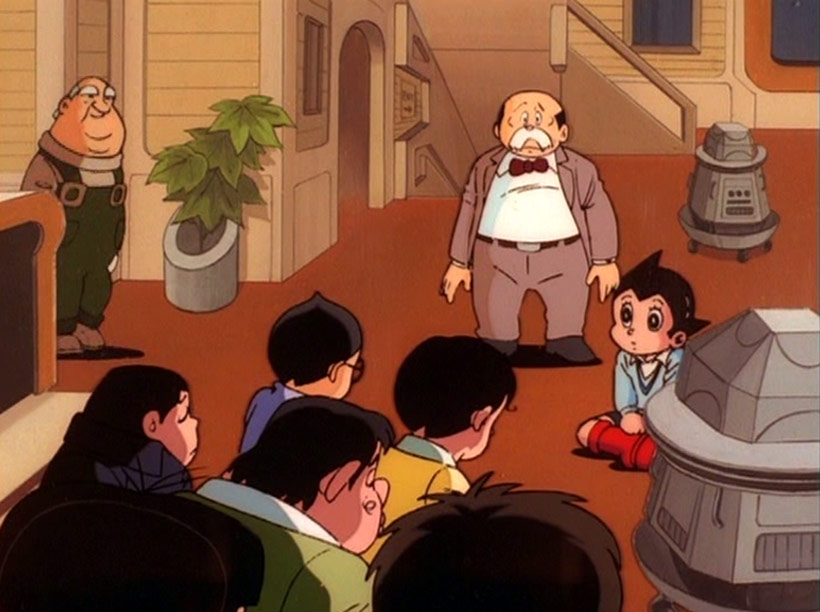
For the price it’s difficult to argue the value proposition with this release, though it would have been a nice bonus if the special features disc (originally included in the 2004 deluxe box set) managed to find its way in here to capture the Japanese cut of the first two episodes. My obsessive completist habits would have loved to see this collected as a Blu-Ray boxed set since the Japanese Blu-Ray release of Astro Boy that came out in 2014 apparently included the English dub. Madman were kind enough to respond while I was writing up this review though to confirm that while there won’t be a HD release on physical media, the whole English series is currently available locally via AnimeLab in glorious HD which is a great alternative if you want to enjoy this classic series in extra shiny detail!
It’s difficult to remain truly objective in reviewing the Astro Boy 40th Anniversary Collection – it’s a show very close to my heart and I’ve loved having the chance to share this with my son as well. The only issues with this release are minor – it would be great to have access to the special features disc from 2004 in the set or, even better, a HD release. While I usually get fixated on technicalities there’s just something heart warming about Astro Boy’s 1980 adaptation that overcomes all that. If ever a HD releases hits Blu-Ray though, be ready for more gushing!
A review copy was provided by Madman Entertainment to the author for the purpose of this review.

